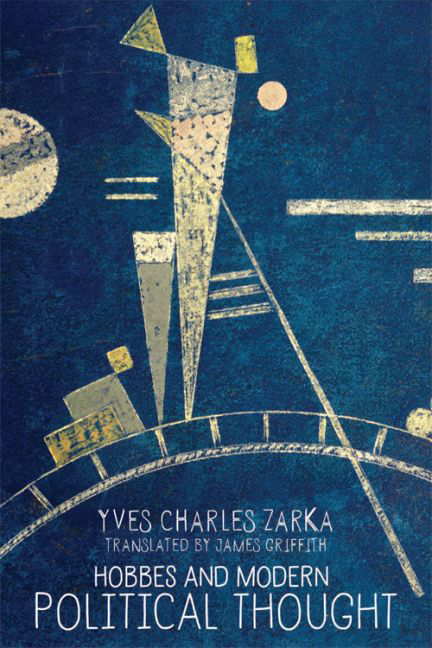Book contents
- Frontmatter
- Contents
- Translator's Introduction
- Foreword
- 1 Journey: To the Foundations of Modern Politics
- Part I Individual and State
- Part II Language and Power [Pouvoir]
- 4 Theory of Language
- 5 The Semiology of Power [Pouvoir]
- Part III Fundamental Concepts of Politics
- Part IV Hobbes According to Two Contemporaries
- Conclusion
- Bibliography
- Index
4 - Theory of Language
from Part II - Language and Power [Pouvoir]
Published online by Cambridge University Press: 23 September 2017
- Frontmatter
- Contents
- Translator's Introduction
- Foreword
- 1 Journey: To the Foundations of Modern Politics
- Part I Individual and State
- Part II Language and Power [Pouvoir]
- 4 Theory of Language
- 5 The Semiology of Power [Pouvoir]
- Part III Fundamental Concepts of Politics
- Part IV Hobbes According to Two Contemporaries
- Conclusion
- Bibliography
- Index
Summary
FROM THE PROBLEM TO THE THEORY OF LANGUAGE
If there is a problem which is found on all levels of Hobbes's work, it is very much that of language. Whether it is a matter of logic, physics, ethics, politics or theology, and whatever the irreducibility of these different domains may be, they are joined by the place and major function that they give to language.
As concerns logic, it suffices to recall that its proper field is deployed in a theory of names, proposition, syllogism and method in order to show its essential relation to the linguistic function right away: logical space is a logico-linguistic space. I say logico-linguistic and not grammatico-linguistic. On several occasions, Hobbes distinguishes logical considerations from grammatical considerations. And so, in De Corpore, when it is a matter of distinguishing simple names from compound names, Hobbes takes care to note that in philosophy, unlike what happens in grammar, a name does not necessarily consist in a single word, but in all the words which, by their meeting, form the name of a single thing. It is not the morphological unity, but the unity of designation that makes the unity of the name. Even though, for grammarians, the expression body animated, sentient is composed of three words, it constitutes only one for philosophers. The same idea is taken up again in Leviathan:
But here wee must take notice, that by a Name is not always understood, as in Grammar, one onely Word; but sometimes by circumlocution many words together. For all these words, Hee that in his actions observeth the Lawes of his Country, make but one Name, equivalent to this one word, Just.
In logic, the unity of the name is a function of the unity or identity of the reference. The distinction between simple names and compound names thus cannot have the same meaning in logic as in grammar: the simple name is not distinguished from the compound by the preposition, but characterises that which is the most common or universal in its genre, whereas the compound name is that which becomes least universal by adding other names.
- Type
- Chapter
- Information
- Hobbes and Modern Political Thought , pp. 53 - 71Publisher: Edinburgh University PressPrint publication year: 2016



